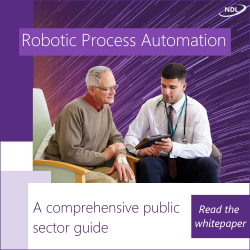Prime Minister refuses electronic option despite Conservatives using it for London May primary vote
Electronic voting is not yet “safe and secure”, the prime minister has told MPs – despite using it to pick his London mayoral candidate.
David Cameron is under pressure to allow online voting on public service strikes as an olive branch to ease criticism of the hardline Trade Union Bill.
The legislation will impose a minimum 50% turnout in strike ballots - with public sector strikes also requiring the backing of at least 40% of those eligible to vote.
This month, Len McCluskey, general secretary of the Unite union, said he would abandon opposition to those lower thresholds in return for electronic voting – to make higher turnouts easier to achieve. He pointed out that such modernised voting is already used when workforces are asked whether they want to be represented by a union.
Commons criticism
The issue was raised in the Commons, when Labour MP Liz McInnes criticised the fact that “school cooks, shop workers and carers” cannot vote either at their place of work or electronically.
But in reply, Cameron said: “What matters is that we have proper ballots and do not have strikes unless a proper percentage of people support them. The problem with electronic voting, which the Speaker’s Commission on Digital Democracy looked into, is that it is not yet clear that we can guarantee a very safe and secure ballot.
“I do not think it is too much to ask people who are potentially going to go on strike to fill out a ballot paper.”
The reply raised eyebrows because, just weeks ago, the Conservative candidate to succeed Boris Johnson as Mayor of London was chosen by the very method that the Prime Minister objected to. The party used online voting as it opened up the selection to ordinary Londoners in an open primary – a contest won by backbench MP Zac Goldsmith with 70% of the 9,227 votes cast.
Earlier doubts
However, Cameron’s criticism is in line with doubts raised by his party about electronic voting before the May general election.
Labour went into the election supporting a switch to online voting as part of a package of reforms to try to match the record turnout at the Scottish referendum. But Sam Gyimah, the then-constitution minister told MPs: “If someone voted online and there was an error there would be no mechanism for checking it. So that is a step we will not be taking at this moment.”




